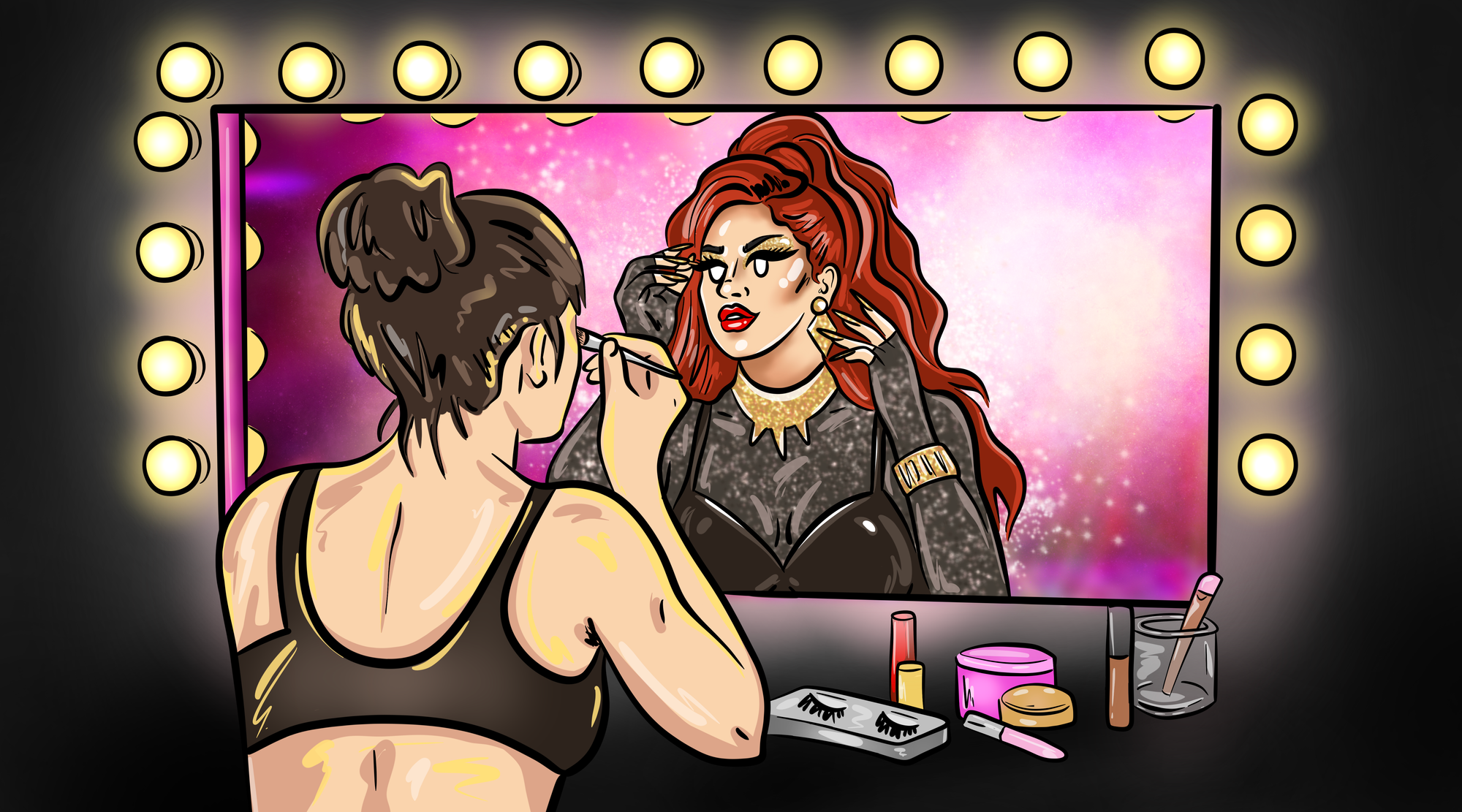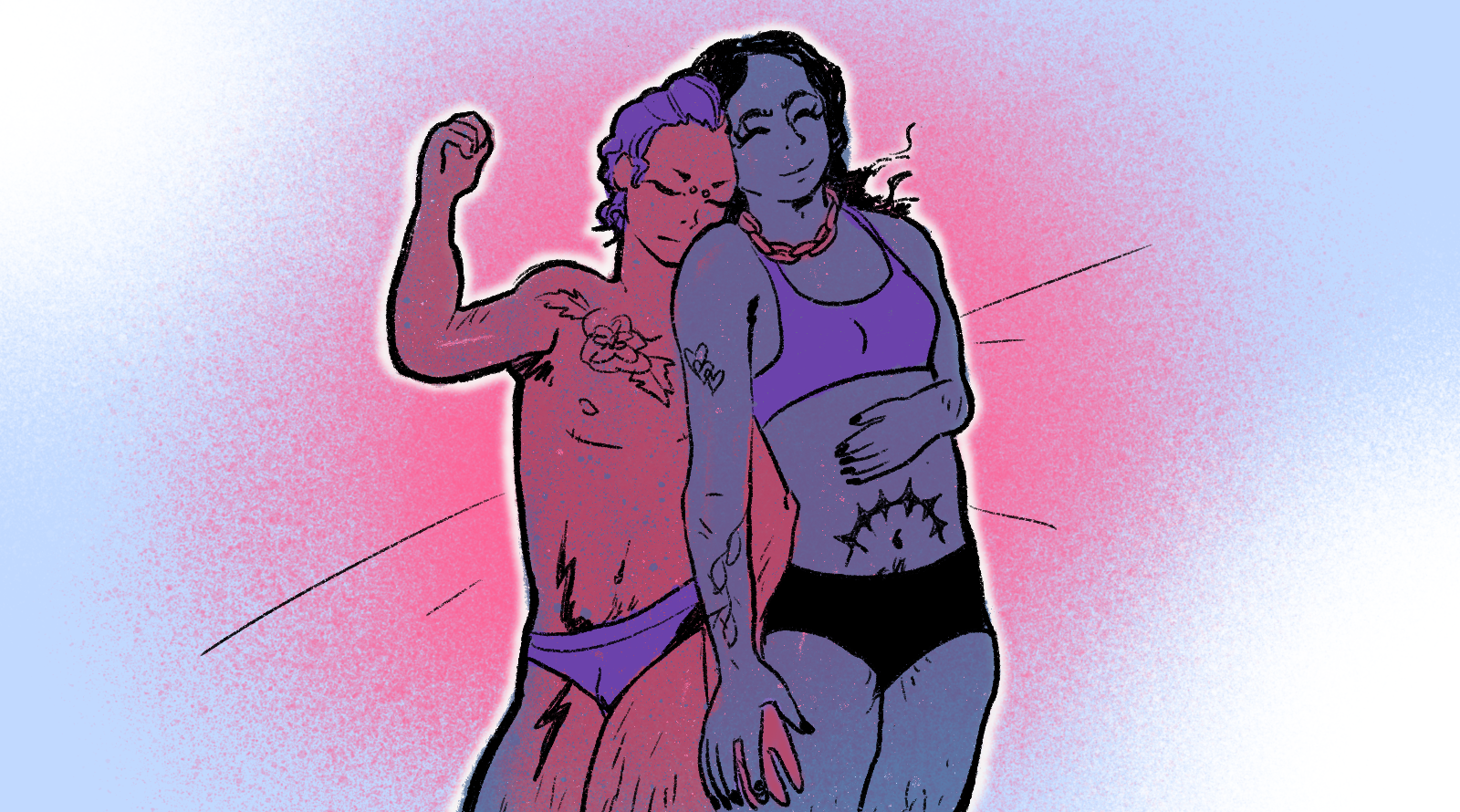Upon entering the strip club industry in 2018, I recognized the reciprocal agreement: in exchange for a predetermined percentage of my earnings, the club would provide a professional venue, client base and security, allowing me to safely offer my services. Having strippers provide a fun and sexy atmosphere is what separates strip clubs from other venues. Without strippers, strip clubs are just another bar with overpriced, watered down booze. I firmly believe strip club management should appreciate the strippers who choose to work at their venues. However, my experience in the industry revealed a contrasting perspective: clubs often view themselves as the primary service providers and as a result, they feel entitled to assert authority over the strippers they take on. I detest this. Strip club managers' responsibilities should be limited to venue operations, not encroaching on performer autonomy.
Being a stripper is not an easy job. Strippers are not just pole dancers, we are the life of the party. The strip club is a fantasy world where you can escape reality and be whoever you want to be, all whilst surrounded by beautiful people. We provide company, entertainment and atmosphere. It takes a lot to not only be willing to take your clothes off in front of others, but to also spend hours walking around in lingerie and seven inch heels, striking up conversation with strangers, and making everyone you interact with feel special. On top of this, the majority of the customers are drunk men who feel entitled to your body. We are at a constant risk of being physically or sexually assaulted whilst at work, and that’s just inside the club. Outside in the real world, the negative stigma attached to our work adds yet another layer to the difficulties of being a stripper. Many of us are forced to live double lives out of fear of being disowned by family, abandoned or abused by romantic partners, and isolated by our friends and wider community. We are denied bank loans due to our line of work. Our chosen profession can be used against us in child custody battles and to deny us housing. The day that you decide to become a stripper is the day that you will forever be viewed and treated differently in the eyes of our deeply whorephobic society. And yet, despite all of this, many of us are still willingly entering this line of work.
Without strippers, strip clubs are just another bar with overpriced, watered down booze.
Why people become strippers is extremely subjective, but in my experience the most common reason is simple: ‘I wanted a job where I could have flexible hours, be my own boss, and not have a limit to my earning potential.’ I can relate to this. Prior to stripping, working as an employee was difficult for me to manage. I am on the autistic spectrum and have been diagnosed with chronic illnesses that impact my ability to hold down jobs with set hours. When I entered the workforce it didn’t take long for me to realise that the best way for me to survive was to become an independent contractor. Prior to becoming a stripper, I made money to support my disabled lifestyle via online sex work. I had just completed my bachelor of arts in film, media and theatre and I saw stripping as a job where I could be paid to perform. Even better; I could choose my own hours and I would be my own boss. At least, that is what I had imagined.
It was all fine to begin with. I was finally in an environment where my skills were valuable. For the first time in my life, I had a job I was genuinely excited about showing up for. I cared about the club and I truly wanted to create a fun atmosphere for the paying customers. I loved having the freedom to get piercings and tattoos and to market myself however I desired. I loved being able to text in sick a few hours prior to work without any guilt. I loved being able to take time off whenever I needed it. Despite my disabilities, I was supporting myself financially and that brought a tremendous sense of relief and a strong sense of autonomy over my life. But things changed very quickly when new management was brought in.
With the new management came new rules. Now we had to wear a floor length dress in between stage spots whilst hustling customers. There were limits on what music we were allowed to dance to. Management became stricter on when we could take breaks. We were getting yelled at for being in the changing rooms, even if there were zero customers. We would be forced to dance even if no one was tipping. There were talks of bringing in fines for dancers who were late to their shifts or stage spots. I watched as an industry that had initially granted me freedom slowly turned into a place where I was walking on eggshells. With all of these new rules and regulations, I felt less like an independent contractor and more like an employee. To quote Fired Up Stilettos’ submission in support of our petition; “the adult nature of sex work requires independence to remain ethical.”
I watched as an industry that had initially granted me freedom slowly turned into a place where I was walking on eggshells.
Management was now telling me how to be a stripper, and this did not sit right with me. I did not understand why they suddenly had so much power over me when I always viewed them as being responsible only for managing the bar, the transactions and the patrons. They were there to provide drinks, to book the lap dance rooms for us, to encourage customers to get out tips and book us. Their income is dependent on strippers bringing in clients, therefore I believed that the manager's job was to make the club appealing not only to the customers, but to us strippers as well. Because again, without strippers, strip clubs are just another bar. Without strippers, there is no door charge that management can pocket. Strippers are the ones who are risking their social safety and security to work in this industry, yet clubs treat us as if we should be so thankful, so indebted to them, that we would do anything to keep our jobs. They behave as if we would be nothing without them, when in fact strippers are what makes the strip club a strip club.
I can’t help but wonder, where does this mindset come from? One could argue that it is due to the over-saturation of strip clubs. Social media has allowed strippers a platform to showcase what was once a taboo and hidden lifestyle to their audience. No doubt influencing the cultural shift we have seen in the attitude towards strippers. Whilst it is far from perfect, more people are less ashamed of their desire to become a stripper and are instead embracing it in the hopes that they can acquire the glamorous lifestyle they see strippers showcase on TikTok and Instagram. But this theory does nothing but absolve management from any accountability, and instead shifts the blame on to those who work as and want to work as, strippers. Just because an industry has a higher demand, does not mean its standards should decrease. If anything, the standards should increase. This theory also fails to explain strip club exploitation prior to social media. I know for a fact these abuses of power took place long before I entered the industry, because strippers from the generation of dancers before me have told me so.
Just because an industry has a higher demand, does not mean its standards should decrease.
When I entered the industry I was a young, excited, and enthusiastic worker. I was passionate about stripping and eager to make it my long term career. I left the industry as a bitter, defeated, angry ghost of my former self. Three years after exiting, I still continue to process and heal from the profound emotional and psychological impact the abuse and exploitation I was subjected to has had upon me. That anger manifested in me joining forces with Fired Up Stilettos, an Aotearoa-based strippers collective advocating against the exploitation of adult entertainers. Having run our own ethical strip club takeovers, I am even more adamant that management's role is to manage the venue, not the strippers. I produce these events, and I barely needed to manage the strippers. They were more than capable of managing themselves, I just made sure everything else was in order to ensure they could make as much money as possible. It’s really as simple as that.
Although exceptional ownership and management exist in some strip clubs, it is unfortunately uncommon compared to the alternative. I stubbornly advocate for a normative shift: recognizing strippers as autonomous, skilled professionals deserving respect, fair treatment and empowerment. If that statement is radical to you, then you probably shouldn't be managing strippers.
Are you a sex worker with a story, opinion, news, or tips to share? We'd love to hear from you!
We started the tryst.link sex worker blog to help amplify those who aren't handed the mic and bring attention to the issues ya'll care about the most. Got a tale to tell? 👇☂️✨




